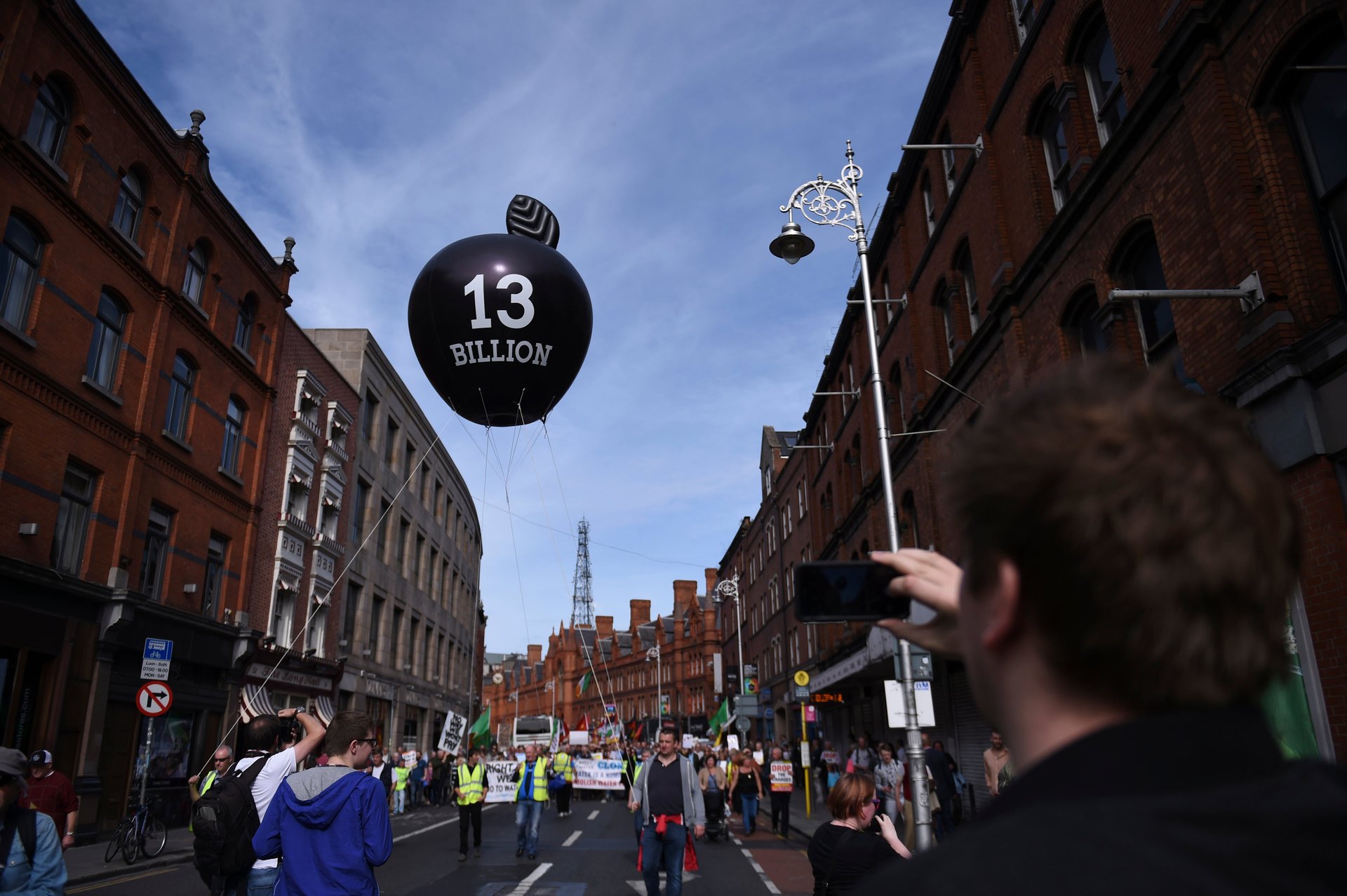Apple is about to launch the next stage of its tax battle with the EU
Apple will appeal this week against the European Commission’s decision that it owes Ireland up to €13 billion ($13.6 billion) in back taxes, according to statements from the company to Reuters in San Francisco yesterday evening.


Apple will appeal this week against the European Commission’s decision that it owes Ireland up to €13 billion ($13.6 billion) in back taxes, according to statements from the company to Reuters in San Francisco yesterday evening.
“Apple is a convenient target because it generates lots of headlines,” Apple general counsel Bruce Sewell said in an interview with Reuters. “It allows the commissioner to become Dane of the year for 2016.” Sewell was referring to the commission’s competition commissioner, Margrethe Vestager, who oversaw the investigation. She was named “Dane of the year” (in Danish) by the Berlingske newspaper in November.
Ireland submitted its own appeal against the ruling to the EU’s second-highest court on Nov. 9. This morning, it mounted a blistering attack on the commission’s case against it in a statement released by its finance ministry. The statement, which elaborates on the legal argument in its appeal, outlined the problems Ireland has with the commission’s decision.
Ireland says the commission’s ruling ”attempts to re-write Irish corporation tax rules” and in doing so, it has ”interfered with national tax sovereignty.” It also argues that the commission has exceeded its powers by using state-aid rules to fix mismatches between global tax systems. “The purpose of the state-aid rules is to tackle state interventions which confer a selective advantage,” the ministry’s statement said. “The state-aid rules by their nature cannot remedy mismatches between tax systems at a global level.”
In its August finding, the commission said Apple paid an effective corporate tax rate on its European profits of 0.005% in 2014, thanks to “selective treatment” from Ireland. Apple was able to do this by recording its sales from Europe and several other regions outside the US to an Irish holding company. Once the money was booked in Ireland, Apple attributed a portion of those sales away from Ireland to a “head office” that the commission says “existed only on paper.” This allowed the vast majority of sales to go untaxed, the commission argued.
This is an “absurd theory,” Apple’s chief financial officer Luca Maestri told Reuters. “[Vestager] is arguing that the base on which we should pay taxes in Ireland is essentially all the profits we generate outside the United States … in a place that doesn’t do any engineering, doesn’t generate any intellectual property for us,” he said.
Apple will lodge its appeal with the General Court in Luxembourg, where Ireland also submitted its appeal. The court will probably take two to three years to issue a ruling. A further appeal will then be possible to the Court of Justice, the EU’s highest court, which would take up a further two or more years.